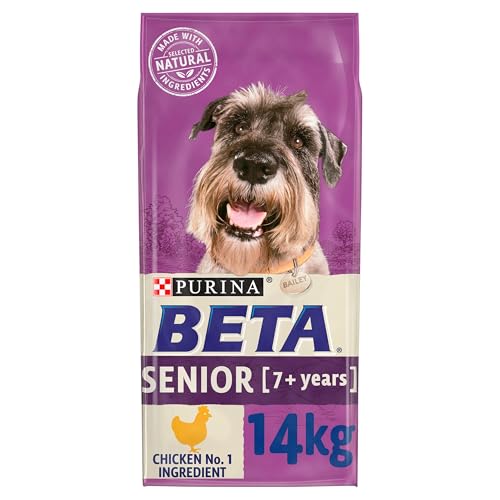Immediate attention is necessary when a furry friend experiences watery stools. The first step is to ensure hydration. Offer fresh water regularly and consider an electrolyte solution designed for pets. If the situation persists beyond 24 hours or is accompanied by vomiting, lethargy, or any signs of distress, a visit to the vet is essential.
Next, evaluate recent dietary changes. Did they indulge in something they shouldn’t have? New treats or table scraps can upset their stomach. If you suspect this, revert to their usual diet and monitor their condition closely.
Additionally, keep an eye out for any parasites. These pesky invaders can often lead to gastrointestinal issues. A stool sample may be required for diagnosis, and your vet can recommend appropriate treatment.
Lastly, maintain a clean environment to prevent further health issues. Regularly clean up any mess, as bacteria can thrive in waste and lead to infections. Gentle cleaning products should be used to ensure a safe area for your companion.
Identifying the Causes of Diarrhoea in Dogs
Monitoring dietary changes is crucial. Sudden shifts in food can upset the digestive system. Always transition gradually over several days to avoid gastrointestinal distress.
Common Triggers
- Dietary indiscretion: Ingesting human food, spoiled items or foreign objects can lead to loose stools.
- Infections: Bacterial, viral or parasitic infections can disrupt normal digestion. Keep an eye out for other signs of illness.
- Allergies: Food sensitivities can manifest as gastrointestinal upset. If certain ingredients seem to cause issues, consider an elimination diet.
- Medications: Some treatments can cause upset stomach as a side effect. Consult with a veterinarian if symptoms arise post-medication.
Environmental Factors
- Stress: Changes in routine, new environments, or other stressors can lead to temporary digestive issues.
- Weather: Hot weather can lead to dehydration, which may exacerbate digestive problems.
Always consult a veterinarian if symptoms persist or worsen. Early intervention can prevent complications and ensure proper care.
When to Consult a Veterinarian for Liquid Stool
If symptoms persist for more than 24 hours, seek veterinary assistance. Prolonged diarrhoea can lead to dehydration, which is particularly concerning for smaller breeds.
Immediate attention is necessary if there are additional signs such as vomiting, lethargy, or blood in the faeces. These indicators can suggest a more serious condition requiring prompt evaluation.
Watch for any changes in behaviour, such as refusal to eat or drink. Loss of appetite alongside loose stools may indicate an underlying health issue that shouldn’t be ignored.
Be vigilant if the pet is very young, elderly, or has pre-existing health conditions. These groups are at a higher risk of complications from gastrointestinal disturbances.
In cases where dietary changes or new treats have been introduced, consulting a vet is advisable if adverse reactions occur. An expert can help determine if the current diet is appropriate or if an allergy may be at play.
Keep track of the frequency and appearance of the stool. If it becomes increasingly watery or frequent, professional input is warranted to prevent further health complications.
Finally, if there’s any uncertainty, it’s always best to err on the side of caution and consult a veterinary professional. Their expertise can provide peace of mind and ensure that the situation is managed effectively.
Home Remedies for Managing Diarrhoea in Dogs
Start with a fasting period of 12-24 hours. This allows the digestive system to rest and recover. Ensure access to fresh water to prevent dehydration during this time.
Dietary Adjustments
Introduce a bland diet after the fasting period. Boiled chicken (without skin and bones) and plain white rice are great options. Gradually reintroduce regular food over a few days. Another option is plain pumpkin puree, which can help firm up stools due to its high fibre content.
Natural Supplements
Consider probiotics specifically formulated for canine use. These can restore beneficial gut bacteria, aiding digestion. Also, slippery elm powder can soothe the intestinal lining. Mix a small amount with food or water according to package instructions.
Keep an eye on hydration levels. If the situation doesn’t improve, consult a veterinarian. For additional tips on training and behaviour, check out this article on do vibration collars work for dog training.
Preventive Measures to Avoid Future Digestive Issues
Maintaining a consistent feeding schedule is key. I’ve found that sticking to specific meal times helps regulate digestion and reduces the likelihood of upset stomachs. Choose high-quality commercial food or prepare balanced homemade meals, ensuring they meet nutritional needs without unnecessary fillers.
Hydration plays an important role. Fresh water should always be available. Dehydration can exacerbate digestive problems, so ensuring ample access to clean water is crucial, especially during warmer months or after exercise.
Introduce new foods gradually. I learned this the hard way when I switched brands too quickly. Mixing the new food with the previous one over a week allows the digestive system to adjust without causing turmoil.
Regular exercise is beneficial. Daily walks or playtime support digestive health by promoting normal bowel movements. In my experience, a tired pup is a happy pup, and an active lifestyle contributes to overall well-being.
Routine veterinary check-ups are non-negotiable. Regular health examinations help catch potential issues early. Vaccinations and parasite control should be part of the plan. I always ensure my furry friend is up to date on all preventative measures.
Monitor for signs of stress. Changes in environment or routine can lead to digestive disturbances. I keep an eye on any behavioural changes and try to maintain a stable atmosphere, especially during transitions like moving or new family members.
Lastly, consider supplements if necessary. Probiotics can promote gut health. After discussing with my vet, I’ve added them to my pet’s diet during times of stress or after illness, and it seems to help maintain balance.






